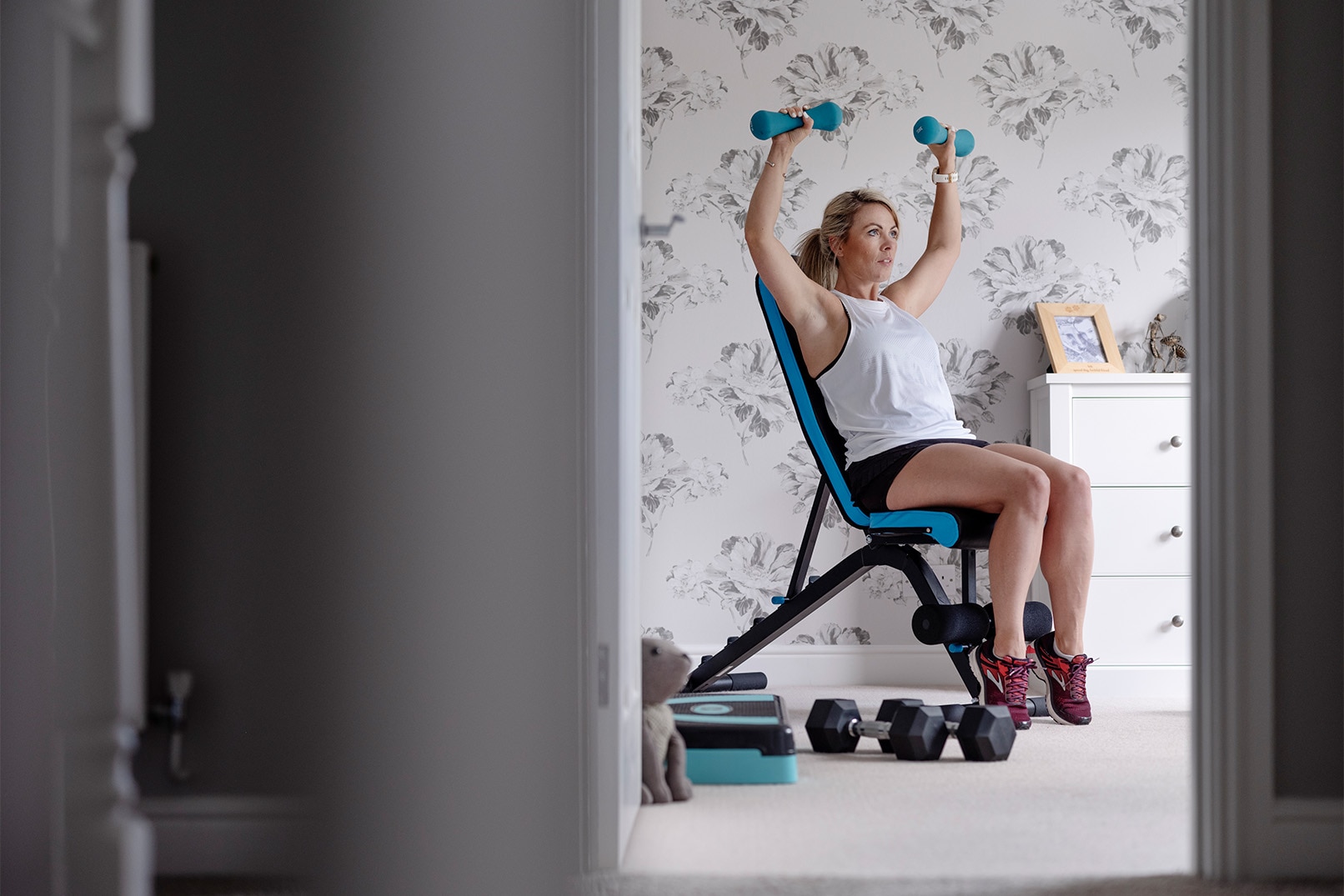
When I went for appointments with my nurse, she would ask me, ‘How is your bladder? or ‘How is your bowel?’ and I would just say ‘okay’, because to me it was okay.

However, like many, it took her a long time to recognise that her bladder and bowel symptoms were connected to her MS. Now, Laura uses both intermittent catheters and transanal irrigation to manage her symptoms and she feels these treatments have improved her quality of life.

Laura leads a busy life and is a huge fan of photography, always enjoying exploring new places, taking photos of both nature and architecture, and of course, photos with her family. In the past, Laura has completed half-marathons, and whilst her physical condition makes this difficult now, she is once again building herself up so she can run more often.
Laura’s experience with MS started with a tingling sensation in her fingers. She had pain in her arm and what she describes as “strange headaches”, it was almost like a burning sensation in her head. After multiple brain scans that ruled out a brain tumour or a stroke, and lumbar puncture, Laura was finally diagnosed with relapsing-remitting Multiple Sclerosis.
When Laura thinks back now, she realises she had probably been experiencing bladder and bowel issues for a lot longer than she was aware of at the time. However, like many living with MS, only when these symptoms became more extreme, did she begin to make the connection.
Laura noticed the link between her MS and her bowel issues first. At one point, she went two weeks without a bowel movement. This was a clear indication for her that something was wrong.

When I went for appointments with my nurse, she would ask me, ‘How is your bladder? or ‘How is your bowel?’ and I would just say ‘okay’, because to me it was okay.

I associated my bowel problems with my MS quicker than with my bladder, because I realised it can't be right.
Eight years after her initial diagnosis, Laura started transanal irrigation. She started catheterising some years after that. Laura had worked in the healthcare profession for many years, meaning she was familiar with both transanal irrigation and catheterisation. But still, when she realised that she needed to use these methods herself, it was nonetheless a very emotional journey. She understood that it meant her MS was progressing, and she had to come to terms with that. This was a shock, and understandably a scary time for her.

Laura was first introduced to intermittent self-catheterisation during the COVID-19 pandemic. Face-to-face appointments weren’t possible, and Laura was actually trained via video conferencing. The nurse offered to stay on the call while Laura catheterised for the first time, but Laura felt it was something she needed to do on her own. She was successful and pleasantly surprised at how easy it was. Naturally, she had concerns about whether it would hurt and how it would feel, but after doing it a few times, it became a routine that she continues today.

Laura tried several different bowel irrigation methods and chose Peristeen Plus as her preferred method. Routine is very important when performing TAI, and for Laura, it took time to perfect her personalised routine. However, after several family day trips when she had to find a toilet somewhere in the centre of London, she realised the importance of sticking to a schedule and keeping her routine on point.
Now, she’s found a routine that works for her. And she knows that if she’s used Peristeen, she can go out for the day, and everything will be okay.
When Laura first started with her irrigations, she wondered if it would really make a difference. Then, after starting, she went for a run and realised that she could do the whole run with confidence, without having to think about where the nearest toilet was. That was Laura’s turning point: she realised that by regularly performing TAI, she could improve the quality of life for both herself and her family. Now, she’s controlling her bowel; it ́is not controlling her.